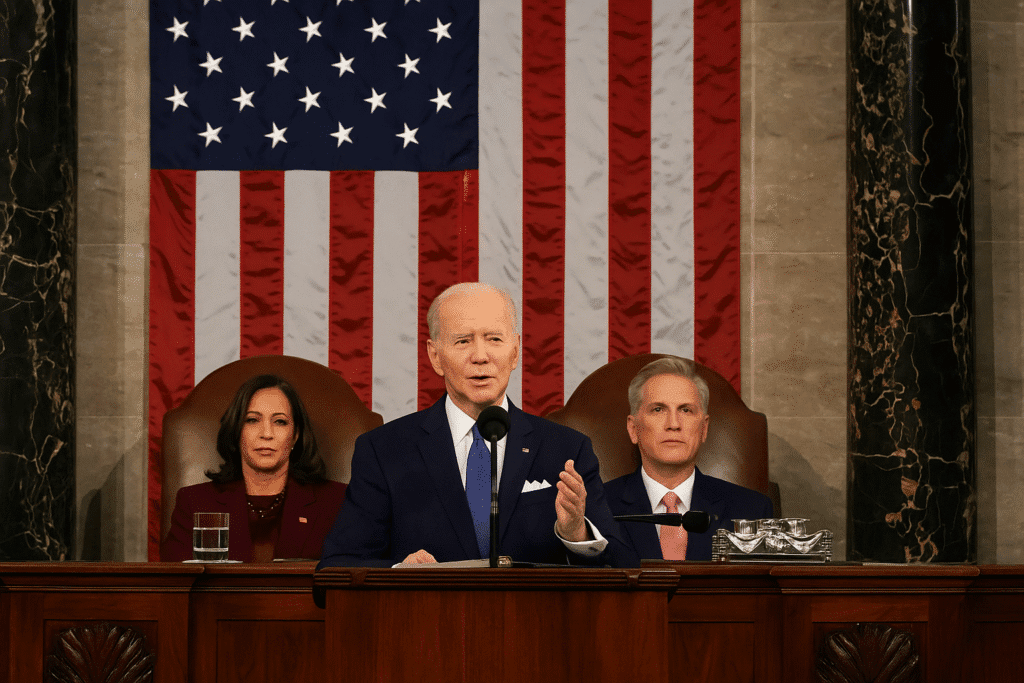In a tense and combative third State of the Union address, President Joe Biden asserted his vision for the future of the United States while confronting some of the most pressing issues of the day. The speech, delivered before a divided Congress, touched on a wide range of topics, from the nation’s security to international relations, and highlighted the sharp political divisions between the President and his opponents, particularly former President Donald Trump.
Biden’s address was notably forceful when it came to defending American democracy and the ongoing challenges he believes are posed by Trump and his allies. The President did not shy away from acknowledging the ongoing threats to the integrity of the political system, emphasizing the importance of truth and accountability. In one of the speech’s most significant moments, Biden declared, “My predecessor and some of you here seek to bury the truth about January 6. I will not do that.” This statement underscored the President’s commitment to confronting the events surrounding the Capitol insurrection head-on, rejecting any attempts to rewrite or downplay the historical significance of that day.
Throughout his speech, Biden also addressed his own age, a subject that has become a point of contention among political commentators and critics. He sought to reassure Americans that his experience and record of leadership were assets, not liabilities, as he looks ahead to the challenges of a potential second term. His defense of his policies, particularly his administration’s handling of the economy and healthcare, was aimed at showing his continued relevance and effectiveness in office, despite the criticisms from political adversaries.
In a more humanitarian gesture, President Biden announced plans for a temporary pier off the coast of Gaza to facilitate the delivery of much-needed humanitarian aid to the region. The move was framed as part of America’s broader commitment to global peace and stability, even amid ongoing geopolitical tensions. This initiative, along with others focused on international diplomacy, was a reminder of Biden’s broader vision for the U.S. on the world stage.
However, the evening was also marked by interruptions and heckling, most notably from Republican Rep. Marjorie Taylor Greene, who loudly called out during key moments of the speech. Her actions, alongside other members of the opposition, highlighted the partisan rift that has defined much of Biden’s presidency. Despite the interruptions, the President maintained his composure and continued to press forward with his agenda.
Ultimately, Biden’s State of the Union address served as both a defense of his record and a rallying cry for a unified future, even as the nation remains deeply divided. His remarks on democracy, national security, and foreign policy illustrated his belief in the enduring strength of American ideals, even as his leadership faces increasing challenges from both within the country and abroad.


